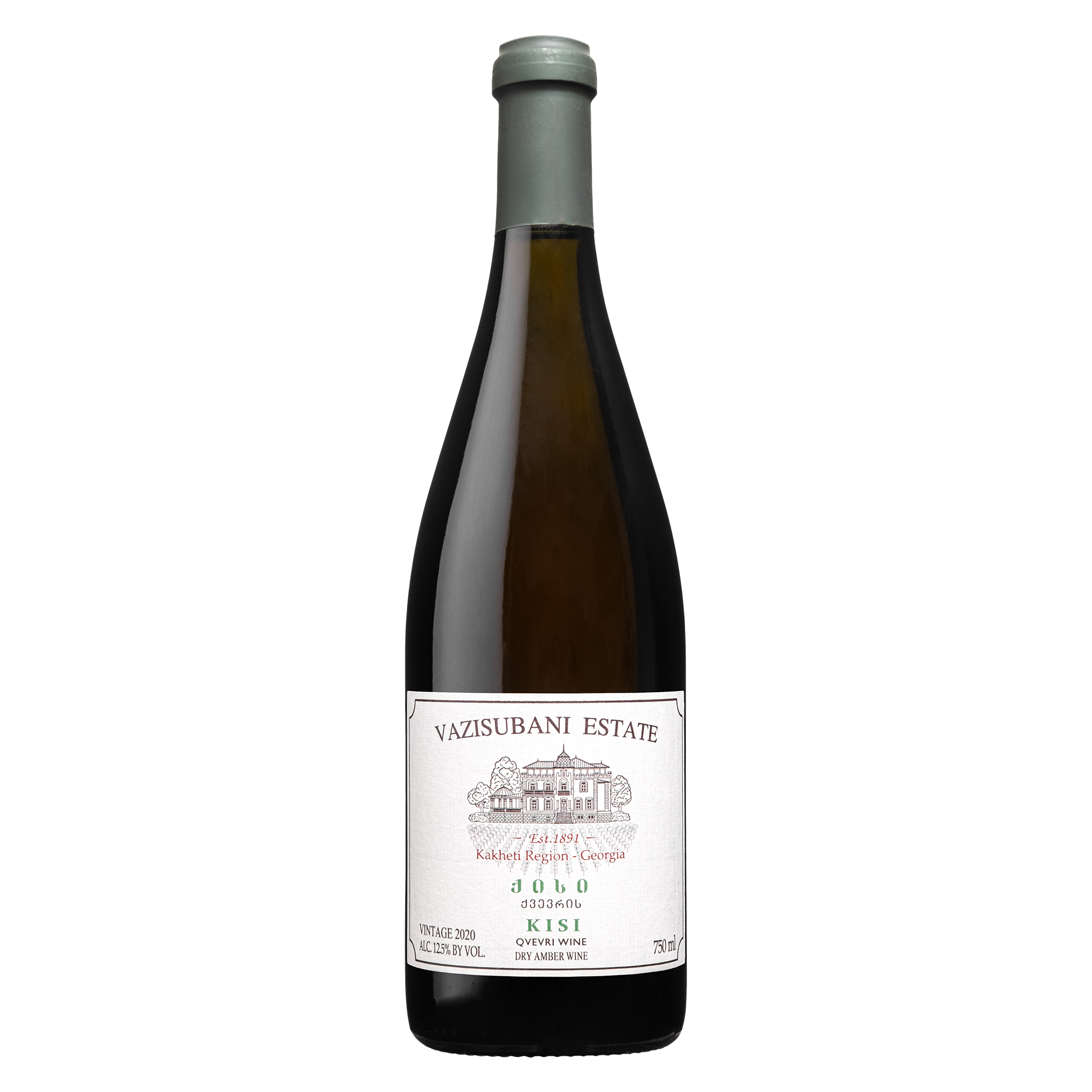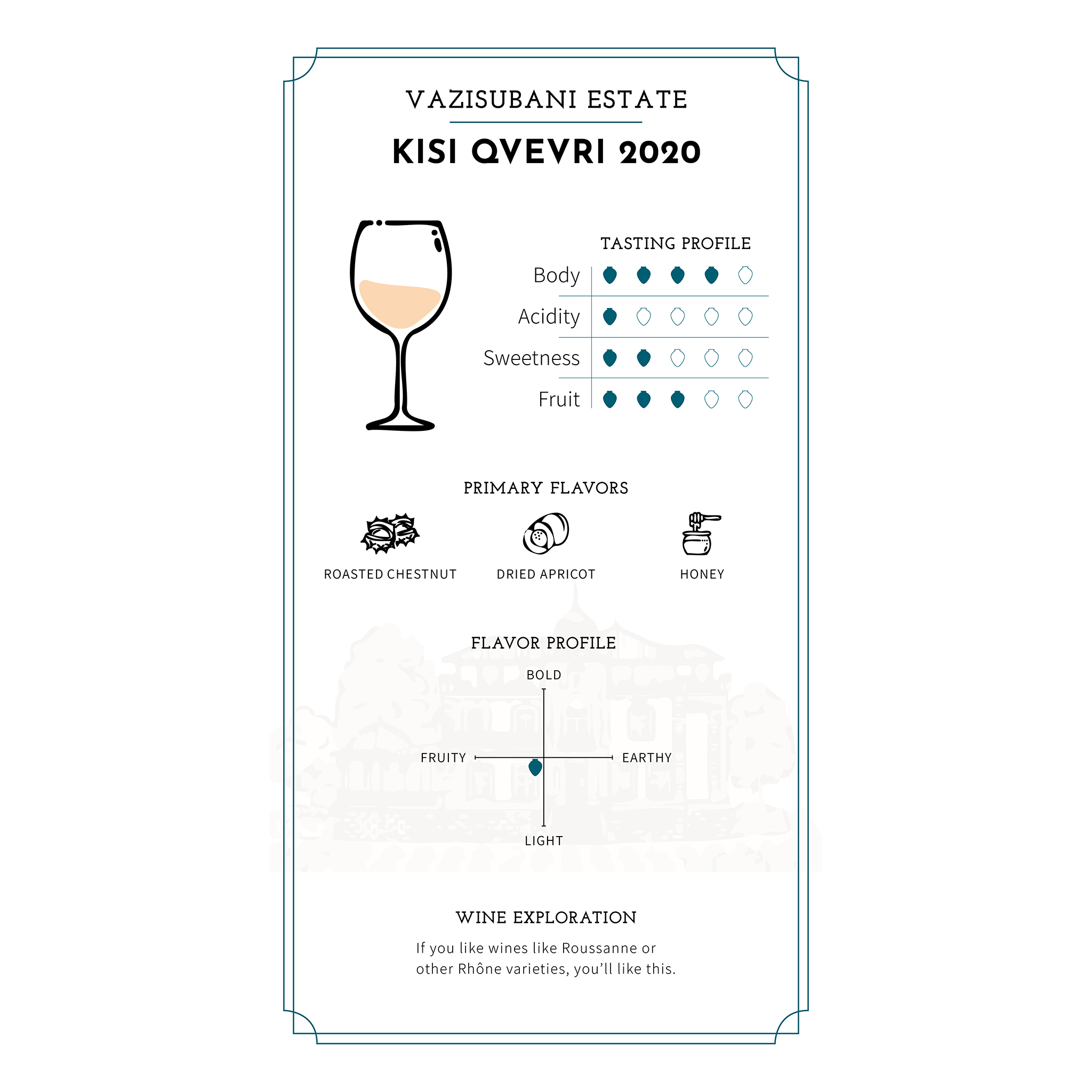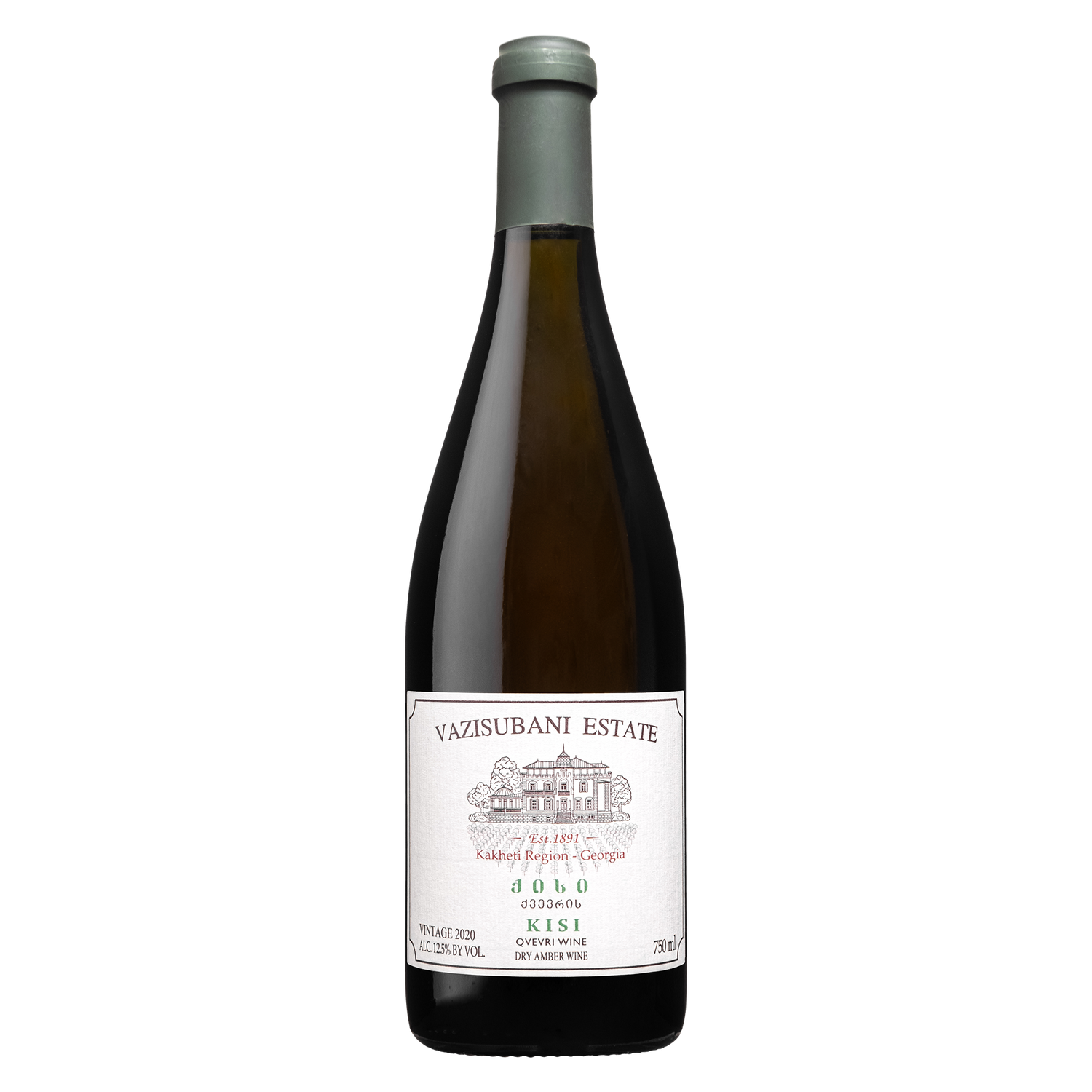Vazisubani Estate Kisi Qvevri 2020
- Regular price
-
$24.20 - Regular price
-
- Sale price
-
$24.20
Our Kisi is made using traditional qvevri methods, exuberantly exhibits notes of apricots, dried fruits, as well as roasted nuts. Full bodied taste, rich of fine tannins from traditional long maceration, shows suppleness and is bountiful.
Perfect with different cheeses and meat products both stewed and fried
Serve at 8-10° C (46-50°F)
Qvevri unfiltered dry Amber
Hand picked, partially de-stemmed
A rare and historic Georgian varietal, almost extinct during the Soviet era.
About the Winery
Vazisubani Estate dates back to the 19th century and traces from one of Georgia’s most storied and cherished family lines, Chavchavadze. The Estate has been meticulously restored over the last decade, emerging as a premier wine-tourism destination built around the palace, gardens, winery, marani (wine cellar) and 35 hectares of estate vineyards.
Winemaker Notes
Under management of one of Georgia’s premier wine makers, Kisi fruit is picked in early morning and brought to the winery where bunches are transferred into qvevri for fermentation according to traditional methods on skins for 6 months using natural native yeast giving rich amber color, depth and classic Georgian character.
Vineyard Notes
The estate-grown Kisi grapes for this wine are sourced from the Vazisubani PDO, on the right bank of the Alazani River in the Kakheti region. Vines are planted 1500-1800feet elevation. Top soil is 14-16inches, black to loamy; Sub-soil is white clay with stony structure laying on a limestone strata with carbonated enclaves.
THE WINERY
Vazisubani Estate dates back to the 19th century and traces from one of Georgia’s most storied and cherished family lines, Chavchavadze. The Estate has been meticulously restored over the last decade, emerging as a premier wine-tourism destination built around the palace, gardens, winery, marani (wine cellar) and 35 hectares of estate vineyards.
Technical Details
Winemaker: Lado Uzunashvili (renowned internationally)
Varietal Breakdown: Kisi 100%, Estate Grown
ABV: 12.5%
Fermentation: Spontaneous, natural wild yeast, Long maceration (6 months) in qvevri
Sulfur: 29mg/l free, SO2 added at destemming & bottling
Filtration/Fining: Unfiltered (no additives, only bentonite used)
Bottles Produced: 40000
Couldn't load pickup availability



Vazisubani Estate Kisi Qvevri 2020
- Regular price
-
$24.20 - Regular price
-
- Sale price
-
$24.20



